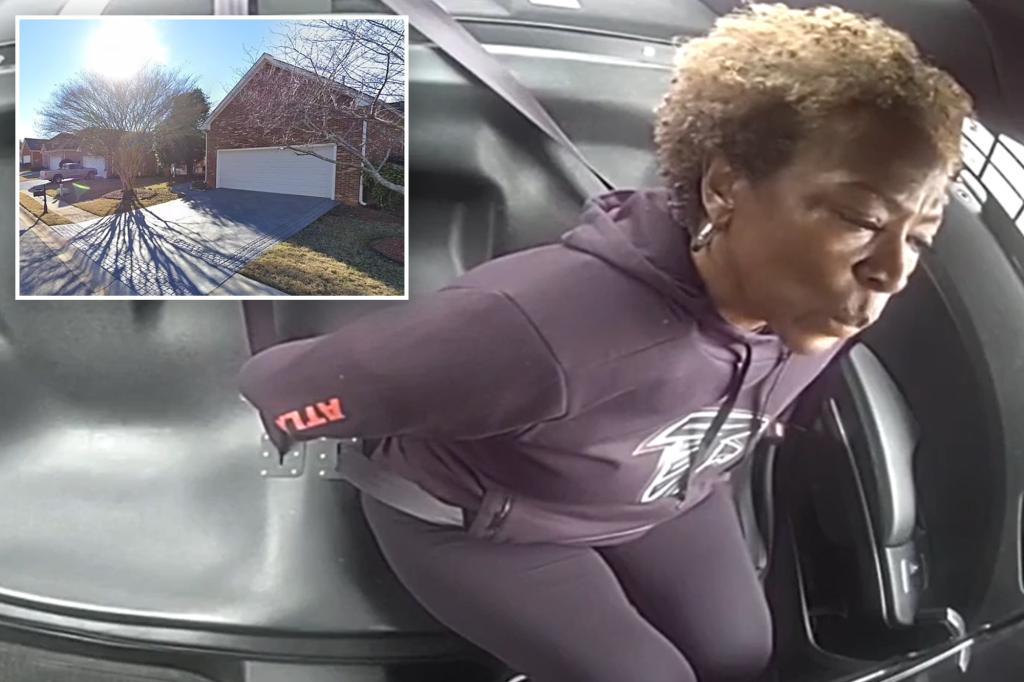The case of Loletha Hale, a Georgia homeowner arrested for attempting to reclaim her own house from an alleged squatter, highlights the growing complexities and frustrations surrounding property rights and the legal processes involved in evicting unauthorized occupants. Hale’s ordeal began with what she believed was a legal victory against Sakemeyia Johnson, the individual residing in her property. However, the absence of a crucial legal document, a “writ of possession,” transformed Hale’s attempt to retake her home into a criminal trespass charge, leaving her to spend a night in jail while the alleged squatter remained in her residence. This paradoxical situation underscores the difficulties homeowners face when navigating the legal system and the potential for misinterpretations or procedural errors to lead to unjust outcomes.
The incident unfolded after a months-long legal battle between Hale and Johnson. Hale, believing the court ruling in her favor granted her immediate access to her property, returned to her home with the intention of beginning renovations. However, she found Johnson still residing there. Hale’s subsequent actions, described by police as an “illegal eviction” and “forcibly removing Ms. Johnson’s belongings,” resulted in her arrest. While Hale maintains she was simply reclaiming what was rightfully hers, the lack of a signed writ of possession rendered her actions illegal in the eyes of the law. This underscores the critical importance of understanding the specific legal requirements and procedures governing evictions, even after a favorable court judgment. Without the proper documentation, even a homeowner can face criminal charges for attempting to remove an unauthorized occupant.
Johnson, the alleged squatter, presented a different narrative of the events. She claimed to have locked the doors when Hale arrived, and that a man accompanying Hale forced entry, demanding they vacate the premises. While Johnson’s account portrays Hale as the aggressor, the legal proceedings prior to the incident suggest a more complex situation. The fact that Hale had already won a court case against Johnson indicates a legal recognition of Hale’s ownership and Johnson’s unauthorized occupancy. However, the absence of the writ of possession effectively created a legal limbo, preventing Hale from lawfully reclaiming her property and inadvertently leading to her arrest. The contrasting accounts highlight the conflicting perspectives and inherent tensions in these types of disputes, where both parties believe they are acting within their rights.
The Hale case is not an isolated incident. Georgia has experienced a significant increase in squatter-related court cases in recent years. Data from the Pacific Legal Foundation reveals a dramatic surge in such cases, rising from a mere three in 2017 to a staggering 198 civil cases in 2023. This upward trend indicates a growing problem that requires attention from lawmakers and legal professionals. The reasons for this increase are multifaceted and likely include factors such as economic hardship, housing shortages, and legal loopholes that squatters can exploit. The rise in squatting not only impacts individual homeowners like Hale but also raises broader societal concerns about property rights, access to justice, and the effectiveness of legal mechanisms in resolving these disputes.
The legal complexities surrounding squatter cases are often compounded by the time-consuming and often frustrating eviction process. Obtaining a writ of possession, the crucial document that would have allowed Hale to legally evict Johnson, can be a bureaucratic hurdle, adding further delays and expenses for homeowners. The process typically involves filing the appropriate paperwork with the court, waiting for processing, and potentially facing legal challenges from the squatter. This can prolong the time a homeowner is locked out of their property and adds to the emotional and financial strain of the situation. The Hale case highlights the urgent need for streamlining this process and providing clearer guidance to homeowners on the necessary steps to legally reclaim their properties.
The increasing prevalence of squatting cases like Hale’s necessitates a broader conversation about legal reforms and preventative measures. Strengthening laws related to adverse possession, the legal principle that can allow squatters to claim ownership after a certain period of occupancy, could help deter illegal occupation and protect homeowners’ rights. Furthermore, increasing public awareness about squatters’ rights and the legal processes involved in eviction can empower homeowners to take appropriate action and avoid situations like Hale’s. Ultimately, finding a balance between protecting property rights and ensuring due process for all parties involved is crucial in addressing the growing challenge of squatting and preventing further injustices like the one experienced by Loletha Hale.

